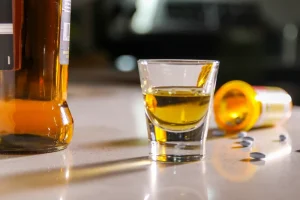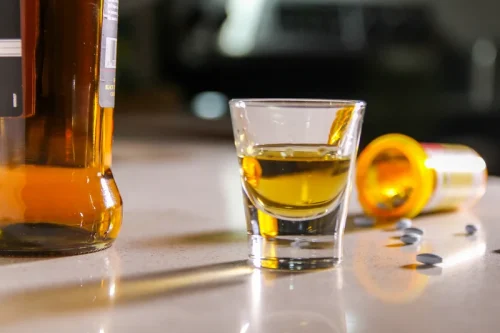Alcohol Withdrawal Syndrome: Outpatient Management

With long-term heavy drinking, alcoholic patients develop a ‘protracted abstinence syndrome’ in which they need at least some alcohol to attempt to feel a ‘normal’ mood, reward, and stress response 5. These deleterious effects of alcohol on the brain may take considerable time, likely on the scale of months to years, of continued sobriety to reverse. It is hypothesized that NBACs are well-suited for managing the symptoms of altered hedonic function, stress reactivity, and craving/urge to drink that are part of the protracted abstinence syndrome in alcoholism.
Alcohol-related seizures in people without epilepsy
Once you stop alcohol intake, a doctor can address your specific symptoms. Doctors tailor specific treatments and alcohol abstinence programs to the individual. The first 50 search results were opened and reviewed for relevant materials. Patients who experience harms from alcohol and other substance use often seek care in the emergency https://ecosoberhouse.com/ department (ED) 1, 2. In recent years, ED visits related to alcohol in North America have increased significantly 3, 4.

Results of individual studies
And a doctor may use brain-imaging techniques to monitor treatment over time. The frequency and setting for outpatient monitoring of AWS should be guided by symptom severity, risk of complications, and social factors, including reliable social support and a safe home environment. Blood pressure, pulse, and alcohol breath analysis should be obtained whenever possible.

MILD SYMPTOMS (CIWA-AR SCORE LESS THAN 10 OR SAWS SCORE LESS THAN
- Alcoholic neuropathy occurs when too much alcohol damages the peripheral nerves.
- It will also talk about why they happen, how they are treated, and how you can prevent them from happening.
- SUDEP is the sudden and unexpected death of a person with epilepsy who is otherwise healthy without a known cause.
- All Addiction Resource content is medically reviewed or fact checked to ensure as much factual accuracy as possible.
- Excessive consumption of alcohol causes alcohol-related neurologic disease.
- Substance abuse treatment can vary depending on the severity of the addiction.
Do not mix anti-seizure medication and alcohol without first speaking to a physician. Barbiturates such as phenobarbital can be used to treat alcohol withdrawal but are far less commonly employed than benzodiazepines because of their narrow therapeutic index. Benzodiazepines are cross-tolerant with alcohol and are considered the first line for the treatment of alcohol withdrawal.

MODERATE SYMPTOMS (CIWA-AR SCORE OF 10 TO 18 OR SAWS SCORE GREATER THAN
Another recent literature review also included evidence from non-ED studies 20. Few studies have evaluated the safety and efficacy of pharmacotherapies for alcohol withdrawal specifically in the ED setting. Benzodiazepines are the most evidence-based treatment for alcohol withdrawal in the ED. Pharmacotherapies that have demonstrated benefit for treatment of alcohol withdrawal in other inpatient and outpatient settings should be evaluated in the ED setting before routine use.
Risk of bias in individual studies
- The periaqueductal gray is thought to trigger clonic seizures, whereas the pontine reticular formation is implicated in the generation of the tonic phase of audiogenic seizures (18).
- Prompt treatment of alcohol withdrawal seizures is recommended to prevent status epilepticus.
- It is followed by the clonic phase in which the person’s limbs jerk rhythmically and rapidly with bending of the large joints such as the elbows and knees.
- Treating alcohol seizures involves a multifaceted approach that addresses immediate medical needs and the underlying alcohol use disorder (AUD).
- Daily drinking can have serious consequences for a person’s health, both in the short- and long-term.
- These results suggest that levetiracetam likely lacks efficacy in the treatment of alcohol dependence 80.
- If you or someone you know has an alcohol use disorder, know that help is available.
As your body adjusts to life without the medication, you may be given medication and therapy options to help you get through the withdrawal phase as safely as withdrawal seizures symptoms possible. Alcohol withdrawal seizures typically aren’t deadly on their own, but they can lead to dangerous complications. If you’re in a standing position or around dangerous objects, a seizure can cause a potentially fatal accident or injury. Along with alcohol’s other effects on your heart, you could experience dangerous heart-related symptoms, such as stroke or cardiac arrest. Unlike in the outpatient setting, ED patients generally present with more severe manifestations of withdrawal and are likely more medically complex. However, they may be more easily monitored, and medications and supportive treatments can be administered intravenously.

Treatment for Alcohol Use & Addiction
- Phenytoin has been shown to be ineffective at preventing alcohol withdrawal seizures 20, 21.
- It is unclear if symptom-triggered benzodiazepine protocols are effective for use in the ED.
- In these models, the withdrawal seizures are triggered by neuronal networks in the brainstem, including the inferior colliculus; similar brainstem mechanisms may contribute to alcohol withdrawal seizures in humans.
- Once your brain chemistry has adapted to alcohol, you’ll feel the effects of chemical imbalance when you go several hours without a drink.
- These changes have a kindling effect, meaning they act as a kindle and trigger seizures during subsequent withdrawal episodes.
- Reducing alcohol intake or quitting alcohol entirely is an important step toward improving your health if you have alcohol use disorder.
After that, many of alcohol’s effects will have faded or will begin to fade. It won’t be long after alcohol reaches its half-life that you start to experience withdrawal symptoms. The length of time you were drinking heavily, the amount you would drink regularly, and the amount you drank last.